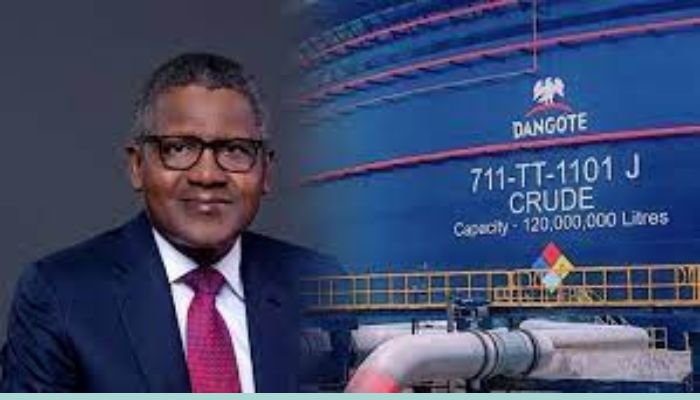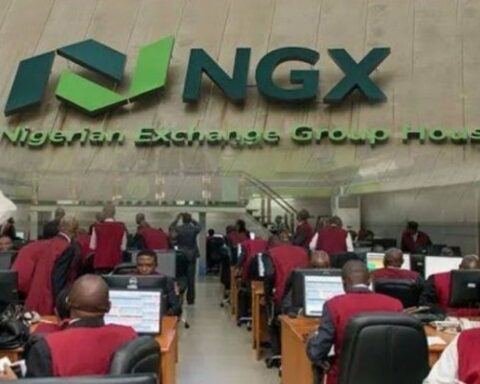By Emmanuella Anokam
Alh. Aliko Dangote, President of Dangote Group, says it is troubling that Africa exports crude oil but imports over 120 million tonnes of refined fuel annually.
He stated this on Tuesday in Abuja during the maiden West African Refined Fuel Conference, organised by NMDPRA in collaboration with S&P Global Commodity Insights.
Dangote noted that although Africa produces around seven million barrels of crude daily, it only consumes about 4.3 million barrels of refined petroleum products per day.
He lamented that only 40 per cent of this consumption is refined locally, in spite of the continent’s vast crude production capacity.
He said most of the refining occurs in Algeria, Egypt, and now Nigeria, with the launch of the Dangote Refinery.
In Sub-Saharan Africa, he added, there are fewer than three properly functioning refineries.
In contrast, he said, Europe and Asia refine nearly 95 per cent of their total fuel consumption domestically.
In spite of producing substantial crude oil, Africa still imports 120 million tonnes of refined fuel yearly, effectively exporting jobs and importing poverty.
“This represents a $90 billion market being captured by regions with surplus refining capacity,” he said.
Dangote clarified that he supports free trade and international collaboration rooted in fair competition and economic logic.
He argued that Africa should not export raw crude only to re-import refined products, which it can produce locally.
He described the experience of building the Dangote Refinery, the world’s largest single-train facility, as fraught with technical, commercial, and contextual challenges.
After solving technical problems, the next issue was commercial viability — starting with crude oil sourcing, which proved unexpectedly difficult.
Initially, it seemed logical that crude would be readily available in Nigeria, a country producing two million barrels per day.
However, they were forced to negotiate with international traders reselling Nigerian crude at high premiums.
“Today, we buy nine to 10 million barrels of crude monthly from the U.S. and other countries,” he revealed.
He thanked NNPC Ltd. for supplying some Nigerian crude since production began at the refinery.
Even after securing crude, transport posed serious difficulties, including frequent schedule changes and excessive port charges.
He disclosed that port charges alone made up about 40 per cent of total freight costs.
This meant port fees cost nearly two-thirds as much as hiring an entire vessel, including crew, fuel, and insurance.
Unlike Europe’s harmonised fuel standards, Africa remains fragmented, with each country maintaining different fuel specifications.
“The fuel produced for Nigeria cannot be sold in Cameroon, Ghana, or Togo — even though we all drive similar vehicles,” he noted.
According to him, this lack of harmonisation only benefits international traders who exploit market differences through arbitrage.
For local refiners, the fragmented standards hinder efficiency and restrict access to wider regional markets.
He called on African regulators to harmonise standards and create a uniform pricing framework across the region.
He urged African governments to protect domestic refiners, as done in the U.S., Canada, and the European Union.
Follow us on all social media platforms @dailyquery for news and analyses around the globe.



























